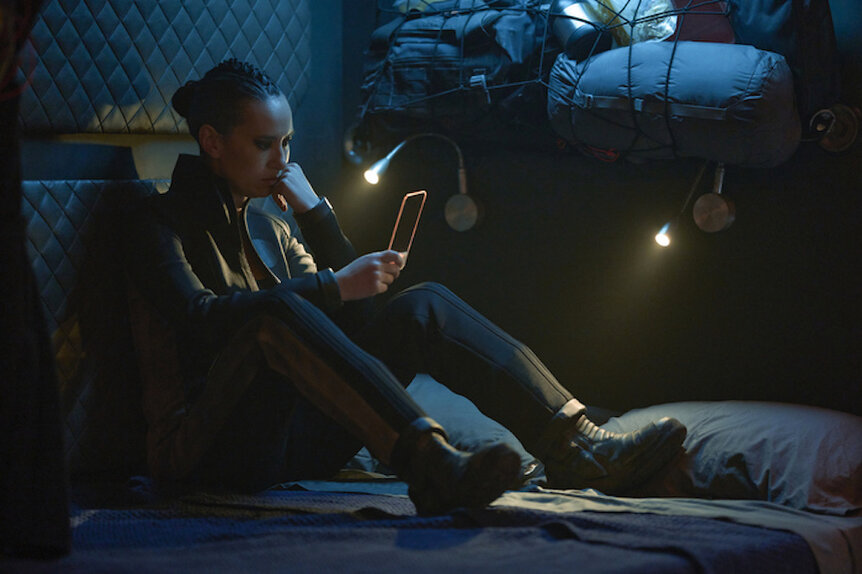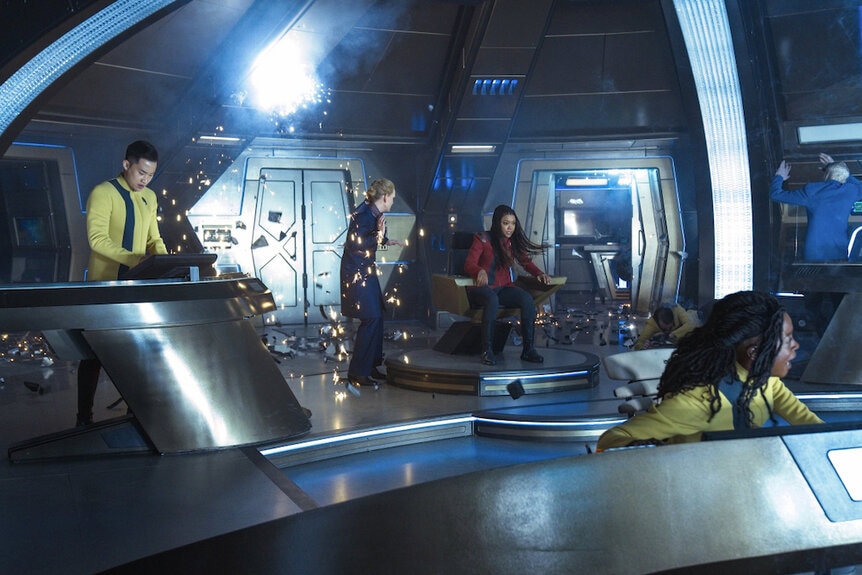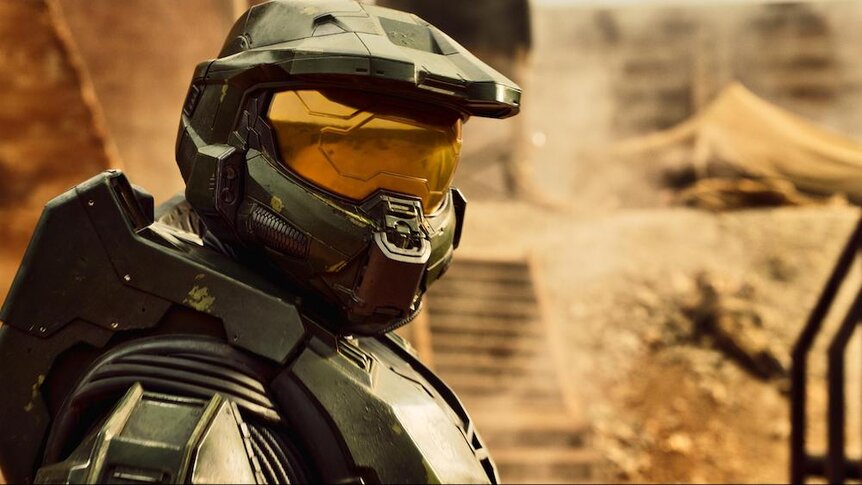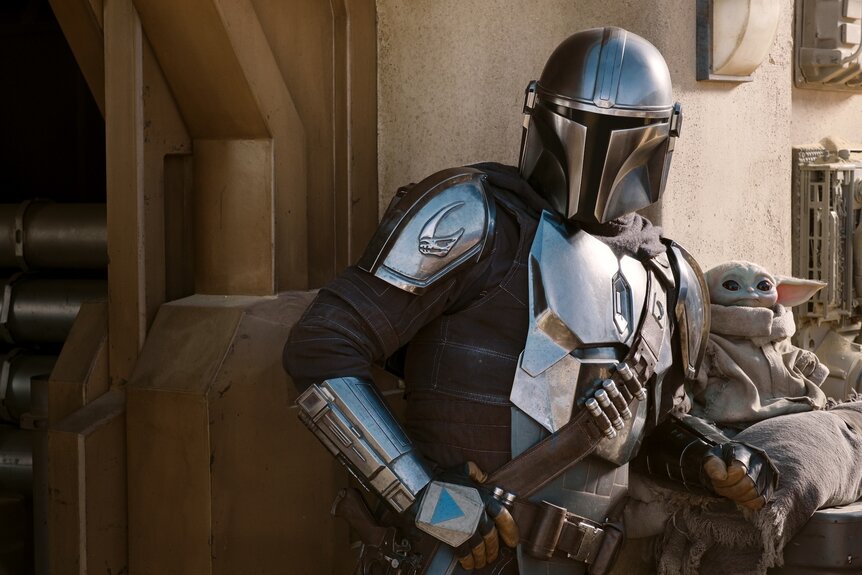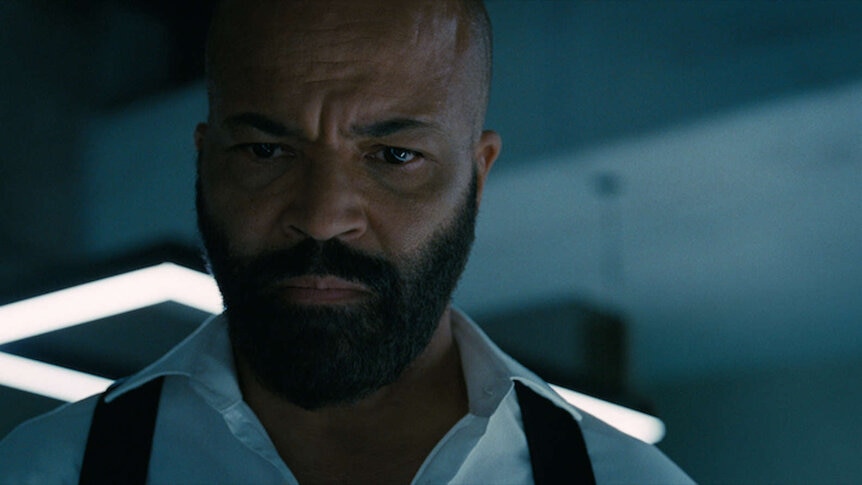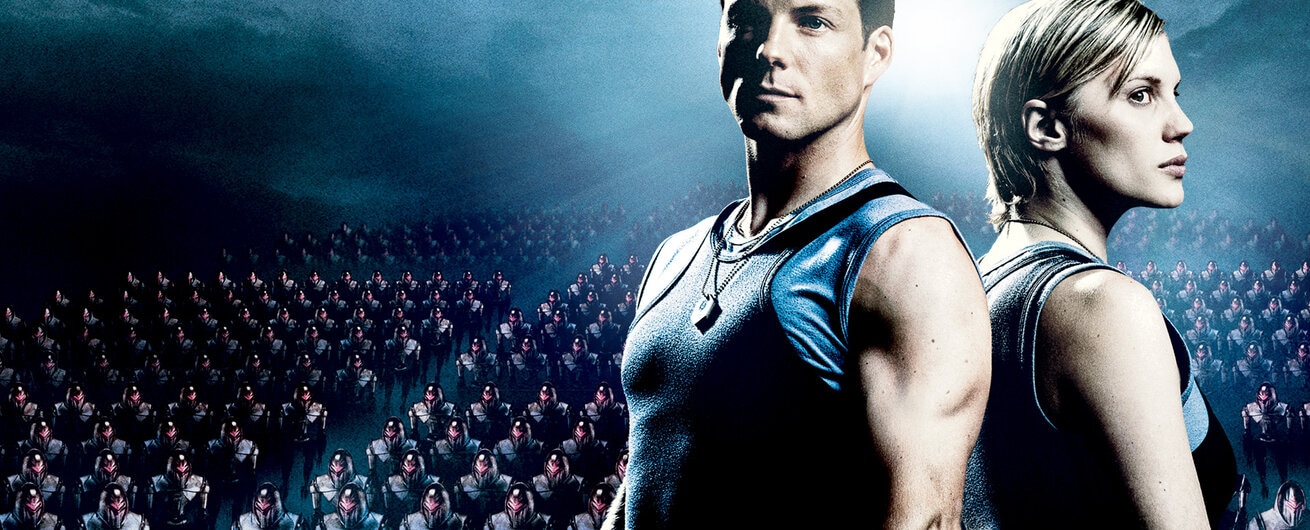Create a free profile to get unlimited access to exclusive videos, sweepstakes, and more!
5 sci-fi shows that would not exist without 'Battlestar Galactica'
The dying leader will know the truth of how BSG lit the way for every show that came after it.
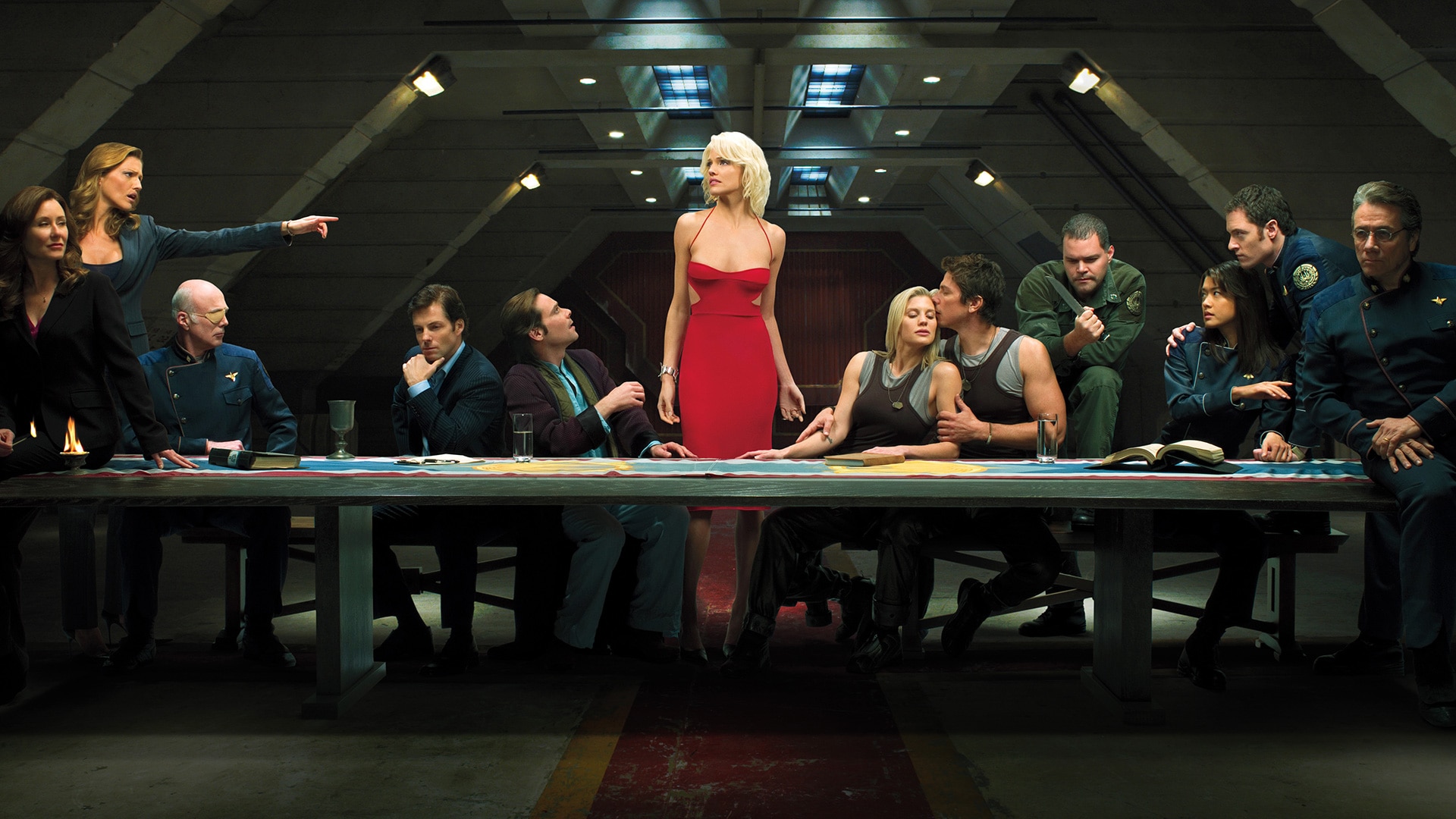
It’s impossible to imagine the current state of science-fiction television without about Battlestar Galactica. If not for Ronald D. Moore’s reimagined series of humans and Cylons finding Earth, countless other series would never have gotten out of the tube.
The Battlestar reboot set a new standard for action and effects. It set a new standard for actors. More than anything, it drew a line down the center of the deck and said that serialized sci-fi on television could (and should) be taken seriously.
Whether it was dealing with complicated political situations, hails of gunfire, or season-long mind games, Battlestar proved that if done well, audiences would show up. In our opinion, the following five series owe a debt to Battlestar Galactica that can never be repaid. So say we all.
1. The Expanse
This might be the closest thing to a “successor” that Battlestar has had. Based on the novels by James S.A. Corey, this incredible series gave us six seasons full of political maneuvering, wonderful acting, and exciting sci-fi action. It would probably have been adapted someday without Battlestar, but not necessarily as an ongoing series.
Galactica was proof of concept that this show could work. It helped to fill the void left by Battlestar, but then it became it’s own thing entirely. By the end, it was no longer a show we watched because we missed Admiral Adama. We watched it because we loved the crew of the Rocinante and were desperate to know what the hell was going to happen next.
Doors and corners, kid. Battlestar checked them so The Expanse could flourish on television. It never had a problem dominating the printed page.
2. Star Trek: Discovery
Battlestar itself may not have happened in the way that it did without Star Trek: Deep Space Nine. A serialized Trek departure (that featured a lot of work from Ronald D. Moore), all of the religious and political drama of the wartime DS9 series showed BSG how it could do similar things.
Turnabout is fair play, and after taking an extended time away from television, Trek returned with Star Trek: Discovery. The ongoing series was (and still is) highly serialized, but more importantly it showed off what a Trek series could do with a creative budget. After Battlestar, a Trek series would have no choice but to rise to a different level of special effects.
Discovery rose to the occasion, and it continues to rise with every season. It also gives itself the freedom to tell a darker story (a mutiny kicks off the entire show) that is pretty far away from the Trek norm of featuring an episodic “ship of saints.”
If fans still want that classic Trek feeling, then they can enjoy the newly released Star Trek: Strange New Worlds. Discovery heralded the big return to television though, and it would not have happened without Battlestar Galactica cheering it on.
3. Halo
After so many years in development hell as a movie, the popular video game series Halo finally found it’s home on Paramount+. A streaming television series based on such an action-packed spectacle would have been unheard of at one point, but things have changed.
This is a huge property, and doing it as a streaming show could be considered a risk. It’s less of a risk after a show like Battlestar, because audiences proved that they’ll show up for a sci-fi show done with care and attention. Battlestar lit the flame, other series that we've mentioned carried the torch, and just like that, having Halo on the small screen became possible.
It didn’t have to be a movie. Long-form science fiction has a place on television, and once again, Battlestar Galactica proved it. The Expanse and Star Trek: Discovery proved it even further.
4. The Mandalorian
Could live-action Star Wars be done on television? George Lucas had a series called “1313” in development for years before he handed the galactic keys off to Disney. Were they going to let tons of concept art and story ideas sit on the shelf when space shows (and fantasy) were coming into their own on television? Not a chance.
Live-action Star Wars was always something that lived in the cinema, and the one televised departure it made in live-action landed the franchise with a notoriously weird Holiday Special. Star Wars did very well revitalizing the mythos with animation on the small screen, but live-action is another matter. Where’s the guarantee, and what’s the roadmap?
Battlestar showed how you can do dynamic starship battles with a television budget. It also showed that no amount of effects in the world matter if audiences don’t care about the characters, and that is something that The Mandalorian nailed from moment one.
Would Din Djarin and Grogu have gotten a bucket of Mickey money and become the flagship program for all of Disney+ if there wasn’t evidence that audiences were primed for this? The Star Wars name takes you a long way, and it is science fantasy, not science fiction. Still, Battlestar was right there to make all of the anxious suits feel better about taking such a space walk. Star Wars isn't sci-fi but it is set in space, so we're counting it.
5. Westworld
Mind games, long-form mysteries, and an old property being given new life. Sound familar? Westworld the 1973 movie and Westworld the HBO series are about as different in tone as the two Battlestar series are.
The movie was fairly straightforward, but the series is anything but. It is full of storytelling puzzle boxes, but plot aside, it’s about shifting alliances and character motivations. Like Battlestar, it has you continuously questioning the nature of your reality.
It’s not only about big sci-fi ideas that manage to look pretty. There’s a certain paranoia at play on Westworld, for the characters as well as the audience. Who is real, and who isn’t? Who is a host, and who is in a different time period? What major character might turn about to only be a voice in someone’s head?
The paranoia of who is a Cylon and who isn’t feels very familiar, as does the question of who the hell Gaius Baltar is always talking to. Whether it’s elegant or ham-fisted, audiences show up for this stuff. It launches Reddit threads by the bucketload. If Battlestar could revive an old property and launch countless fan theories with it, then so could Westworld. It could, it did, and it will continue to.
You can stream Battlestar Galactica on Peacock right here.
